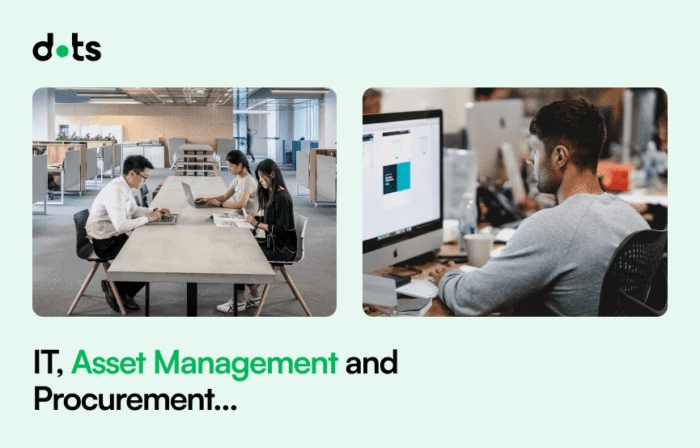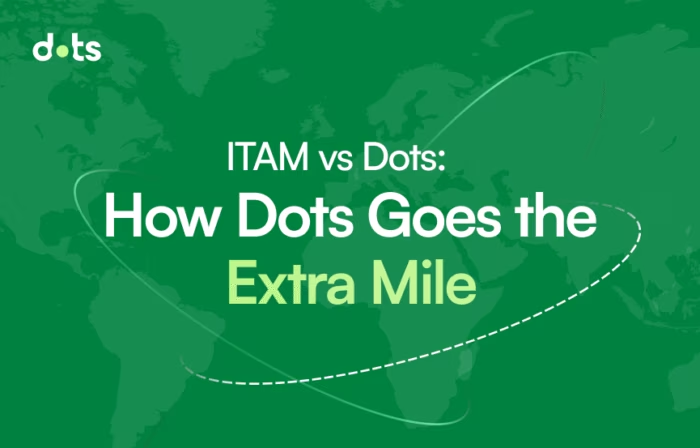Who knew that a software licensing issue, something IT asset management (ITAM) stakeholders have dealt with for so long, could end up in front of an actual jury? If we’ve said goodbye to the old problems with ITAM for software and hardware, it’s only natural that we’d have to say hello to some new ones. That’s exactly what happened in cases like the Tesco Stores Limited v Broadcom Inc and others, filed in London’s High Court on July 15, 2025.
The U.K. supermarket giant says that Broadcom, an American software and semiconductor provider, had licensing changes that could disrupt its (and other businesses’) supplies and logistics operations.
We understand that this might seem like a TL;DR, just IT contracts and perpetual licenses. But this story is a stark reminder that IT asset management isn’t always that easy. Get it wrong, and you’re suddenly non-compliant.
The Broadcom-VMware shake-up
The story started when Broadcom purchased VMware for $69 billion in 2023, promising to “simplify” the cloud computing software company’s product lines. But it ended up causing a big change to licensing. No more perpetual licenses that consumers relied on for years—they now had to subscribe to new and even pricier bundles.
At first, the grocer had both a perpetual license and, later on, subscribed via reseller Computacenter (a co-defendant in the case). The subscription was supposed to be valid until 2030 so that Tesco would be able to use the software it had been using for years, supporting 40,000 virtual workloads across its stores. But, according to a The Register article citing court filings, Broadcom refused to have the subscription renewed. Instead, it allegedly wants to shut down products still used by Tesco and insists on another “new” package.
For how much? 237% more than what the supermarket already pays for.
Breaking down Tesco’s claims
We don’t have to go over every detail of Tesco’s legal battle. Instead, here’s what it established for the High Court, simplified into the core points that tech teams, whether managing IT hardware or software, should care about:
- Broadcom is charging Tesco for software that it already owns.
- Instead of offering flexibility when it comes to the custom plan, Broadcom used a “Take it or leave it” approach in its negotiations.
- The new deal would only mean duplicate licenses at a price that’s £15 million (about $20 million) higher.
- If Tesco doesn’t sign the new contract, Broadcom will end support and updates.
- VMware is very much involved in the supply and logistics of Tesco’s stores, and service disruption could affect the food supply chains of the UK and Ireland.
The plaintiff says that its £100 million compensation claim is still “conservative,” signaling that it could increase if the High Court accepts Tesco’s argument that Broadcom’s approach exploits its dominance of the market.
Lessons for IT asset management teams
Anyone who has dealt with IT knows how much of a problem vendor lock-in can be, especially when things don’t go your way, or when your vendor throws a practical joke in there that goes, “Congratulations, the software you’re using is still useful! That’ll be triple the price.”
Why won’t Tesco just switch? Because it won’t be a weekend thing. The transition would be so costly and time-consuming that the grocer filed a lawsuit instead.
This case underscores three truths for those who work on IT equipment and software purchases: a critical, locked-in dependency means the vendor has more power, license clarity is a BIG non-negotiable, and resellers can be liable, too. These are practical lessons for managing assets and avoiding costly surprises.
Another key lesson here is that vendor management is not an afterthought. You need to track licenses as if your business depends on it (because it does), and that’s why ITAM software with real-time license visibility is so important.
And it’s not just Tesco
Yes, that’s right, other companies, such as Samsung and AT&T, have raised the same concerns in U.S. courts. Even European regulators are now reviewing Broadcom’s price spikes of up to 1,500% in the region. Whether or not Tesco wins, IT leaders everywhere should assume vendors may shift licensing models dramatically after mergers and acquisitions.
But if Tesco settles privately, which The Register says is a possibility, little is likely to change for the rest of us. That would leave IT asset management stakeholders facing the same risks. That said, if you’re ready to treat mergers and acquisitions as red-alert moments, here are some reminders in case your subscriptions become subject to such:
- Review and confirm perpetual, subscription, and support rights in writing.
- Audit business-critical dependencies.
- Engage procurement and legal early. Don’t wait for a renewal deadline—align teams as soon as M&A rumors surface.
- Model worst-case renewals and budget for unexpected spend.
- Keep alternative vendors on radar.
- Before you sign new ones, ensure obligations and liabilities flow through clearly in case the vendor shifts terms.
The takeaway for IT decision-makers
Whether Broadcom prevails or Tesco secures damages, the case highlights the need for ITAM teams to combine strong data, vendor risk oversight, and proactive planning.
And while the legal fight unfolds in London, IT leaders worldwide should be asking: do we really know what we own, what we owe, and who controls the terms?
Staying ahead of vendor changes is complex, but it doesn’t have to be overwhelming.
That’s why solutions like Dots exist. By automating asset tracking, software updates, and IT hardware deployment, we help enterprises maintain visibility and control, even during turbulent vendor transitions. If Tesco’s story has you questioning your own ITAM resilience, now is the perfect time to learn how Dots can safeguard your assets before the next merger changes the rules.



